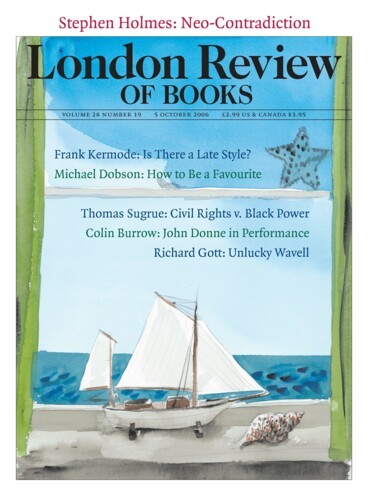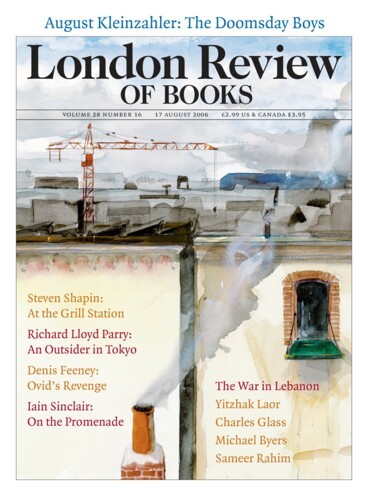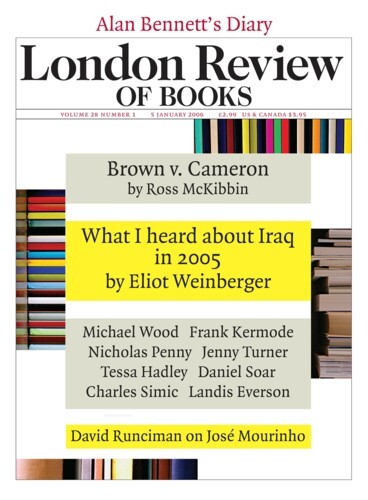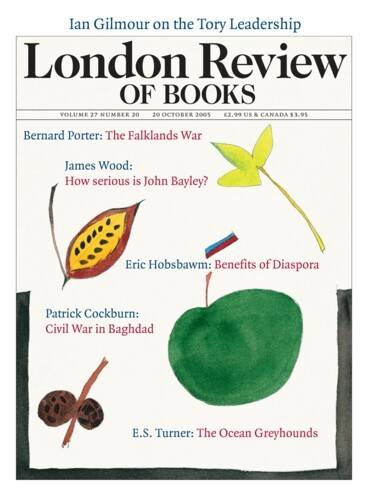Dream Leaps: Alice Munro
Tessa Hadley, 25 January 2007
Alice Munro doesn’t write much about her writing: there are only a few interviews, hardly any essays or journalistic pieces, and we don’t catch her holding forth about her literary likes and dislikes. But here in her new collection, The View from Castle Rock, she speaks to us directly, first in a brief introduction explaining the way the book has been put together, and then in a piece, ‘No Advantages’, in which she describes in her own person the researches into her family history that have resulted in some of the stories that follow.





